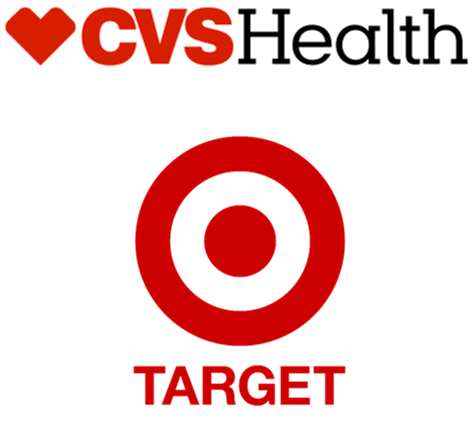The big news today that CVS will acquire, rebrand and operate Target’s 1,660 pharmacies lies squarely at the intersection of pharmacy practice, healthcare and health policy. How does this change the pharmacy landscape? It will turn CVS from a pharmacy juggernaut into a pharmacy Hulk. At the conclusion of the deal, which still has to be approved by regulators, CVS will operate nearly 9,500 pharmacies (7,800 CVS pharmacies + 1,660 Target pharmacies). That’s greater than 1,000 more than its next closest competitor, Walgreens. For more information, read the press releases from CVS and Target or, if you have ~40 minutes for each, listen to the CVS call and Target call about the arrangement. They’re highly informative and the sources for much of this blog post.
What does this mean for pharmacists, patient experience and the generic discount programs? Read on for my thoughts.
**Note: I worked for CVS for 2 years but transitioned to different, smaller pharmacy chain in October of 2013**
Pharmacists
Most directly affected will be the current pharmacists working for Target. According to Larry Merlo, CEO of CVS, CVS plans to “offer positions to all Target pharmacy and clinical teams and [they] look forward to welcoming them to the CVS/Health family upon the close of the transaction.”The translation is that all pharmacists will be fired by Target and offered a job by CVS. Target’s investor call said basically the same thing.
The good news is that pharmacists currently at Target should expect to still have a job a year from now. The bad news is that the salary, benefits, work environment and corporate structure will all likely be different. Little change is likely to happen immediately, but over time, the FTE:Rx ration will likely fall as CVS seeks to reduce costs.
What will a CVS within a Target look like? CVS and Target are calling the arrangement a “store-within-a-store” design. From the Target call, it is specified that Target will still sell its own branded OTCs. Therefore, the CVS presence will be relegated to behind-the-counter space, counseling rooms and clinic space in the form of Minute Clinics. I wonder if Target will be returning any money to CVS for the time spent by CVS pharmacists over-the-counter in Target “territory” selling Target-branded OTCs.
What does this mean for CVS pharmacists? Likely, there won’t be much change for pharmacists at current CVS locations besides easier data access and prescription transfers. Districts may be rearranged now that the number of stores is increasing so substantially, but I would be surprised if major changes took place at existing CVS stores. I see this as more of a CVS move into Target, not a blurring between Target and CVS pharmacies.
In summary, it seems like Target is trying to transition its behind-the-counter space to CVS and expand clinic offerings with as little change possible regarding OTCs and personnel. At the same time, if I were a Target pharmacist and had a good opportunity to transition my employment before the sale goes into effect, I would.
Patient Experience
This will, of course, depend on how CVS transitions the stores and each patients’ previous experience with pharmacies. That stated, the J.D. Power rankings of pharmacies have CVS/Pharmacy ranked much lower than Target pharmacies. If most staff stay consistent and the transition is gentle, patients might take favorably to the co-branded relationship. That remains to be seen, though, and if the comments on the Target press release are any indication, Target is in for a rough ride.
Generic Discount Program
Target currently has a different type of $4 generic program than does CVS. Through Target’s $4 generic discount program, $4 (or $9, $10 or $24 depending on drug and quantity) becomes the de facto usual and customary price. Therefore, even insured patients pay no more than the discounted price. CVS, on the other hand, uses a $15 annual membership fee to limit access to the generic drug discounts, and therefore can charge whatever usual and customary price the market will bear for insured patients or cash-paying patients not enrolled in the discount program.
The difference between these programs is substantial. Target loses much more money than CVS on the generic discount program because all patients receive generics at the discounted price at Target.
From this quote from the Target conference call, “as a part of this agreement, CVS is committed to having a low cost generic drug option available, without a membership fee, to Target guests who pay cash.” (4:02), it seems like CVS will be adopting a Target-like generic drug discount program. I really wonder what form this would take. It may be that CVS has two different generic discount programs, one for standalone stores and one for Target stores. Alternatively, it could be that CVS has a very limited set of generic prescriptions available to all patients at a discount, with a larger set available once a registration fee is paid. When asked on the Target call how CVS would structure the new program, the respondent said that the specific design would be up to CVS. I look forward to seeing how this discount program is created. Regardless, I anticipate CVS trying to transition Target stores over to a membership fee based model so they can continue to charge the full cash price to insurance companies.
Final Thoughts
I certainly didn’t expect this deal. From the Target investor call, it seems like Target lost money on its pharmacy business in 2014. They seemed to be structuring their pharmacy services as a loss-leader, though, so I assumed that they would be getting enough revenue through other purchases to justify a lack of pharmacy profit. CVS’s ability to purchase generics at deep discounts and use established pharmacist services suggests that it will be able to obtain higher profits than the currently operating Target stores.
This deal makes CVS the clear leader in the pharmacy industry in the US. I really wonder if Walgreens-Boots-Alliance is pursuing similar deals. Stay tuned for more updates.


Would 2 separate generic drug pricing programs be an issue with Medicaid reimbursement? In states where the Medicaid MAC is higher than $4 on a particular generic, CVS would not be able to sell generics at stand alone stores at the MAC price & then charge $4 at the Target locations. I’m not sure if this is even an issue, but definitely a question I’d want answered if I’m in charge of drug pricing in Woonsocket…
LikeLike